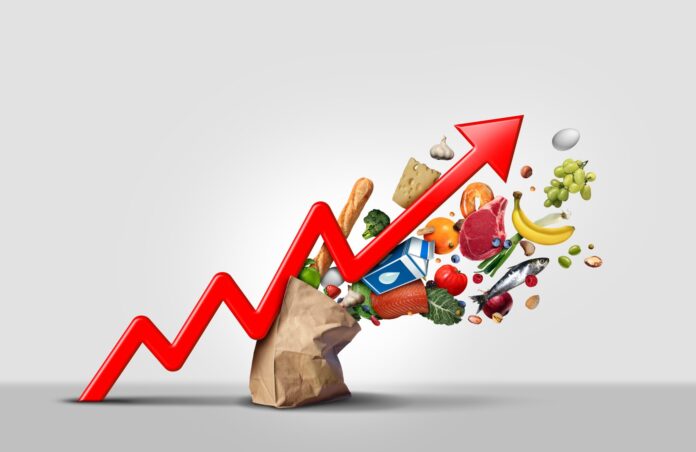AUBURN UNIVERSITY, Ala. – According to the United States Bureau of Labor Statistics (2022), food prices, on average, increased by 10.8 percent from April 2021 to April 2022. This spike marked the largest one-year percentage increase in more than 40 years. Likewise, the price of food, such as eggs, meat, poultry and fish, has increased by 14.3 percent within the same period. Not only have food prices steadily risen, but the price of gas, housing, transportation and healthcare have risen as well. People are looking for ways to survive the high cost of living.
Impact of Inflation
Overall, daily living costs rose 8.5 percent in the past year. Due to inflation, households now spend an additional $341 to purchase the same goods and services they did one year ago. This means that families have less disposable income (available money after tax deductions). Unlike high-income families, low-income families are more likely to use their income for necessities like food, gas and housing. So, the slightest change in disposable income for these families makes it extremely difficult to manage household expenses.
The wages of average workers are not keeping pace with the steady rise in prices. The result is inflation, causing a decrease in buying power. For example, meat that cost $50 a year ago, now costs $57.15 or more. Inflation not only impacts buying power, but it affects budgets as well.
Cost-Saving Tips
While soaring inflation is causing many people to rethink their spending decisions, an important decision you can make is to create and use a spending plan. A spending plan is simply a budget outlining how you will spend your money. A spending plan also helps to control spending. Other cost-cutting tips to control spending on food, gas and housing are listed below.
Food
- Use coupons and coupon apps.
- Take advantage of special offers (e.g., two items for the price of one).
- Buy generic or store brand.
- Plan menus ahead of time.
- Buy cheaper cuts of meat.
- Buy in bulk but make sure the unit price is lower than when sold individually.
- Avoid buying food items that require less labor (e.g., chopped onions, bagged salad, cubed fruit or shredded cheese) because they cost more money.
- Limit eating out.
- Establish container gardens to grow fresh produce and reduce food costs.
Gas
- Use public transportation where available.
- Carpool
- Use apps to avoid traffic jams or rush hour traffic.
- Use gas apps to locate the least expensive gas in your local area.
- Keep your vehicle well maintained (tires properly inflated, regular oil change, etc.)
Housing
- Move in with parents or friends or get a housemate.
- Learn to do your own home repairs if a licensed person is not required.
- Identify ways to save energy and cut water usage to save on utility bills.
More Information
In closing, some individuals whose wages increase with inflation can possibly absorb the rising cost of necessities more easily. Unfortunately, many individuals and families (e.g., older adults and those living paycheck to paycheck) feel the pinch of increasing prices as inflation outpaces their paychecks. Nonetheless, use these money-saving tips to survive the high cost of living.
Visit https://www.aces.edu/ for more cost-saving tips to reduce monthly household expenses.






























